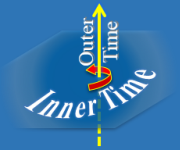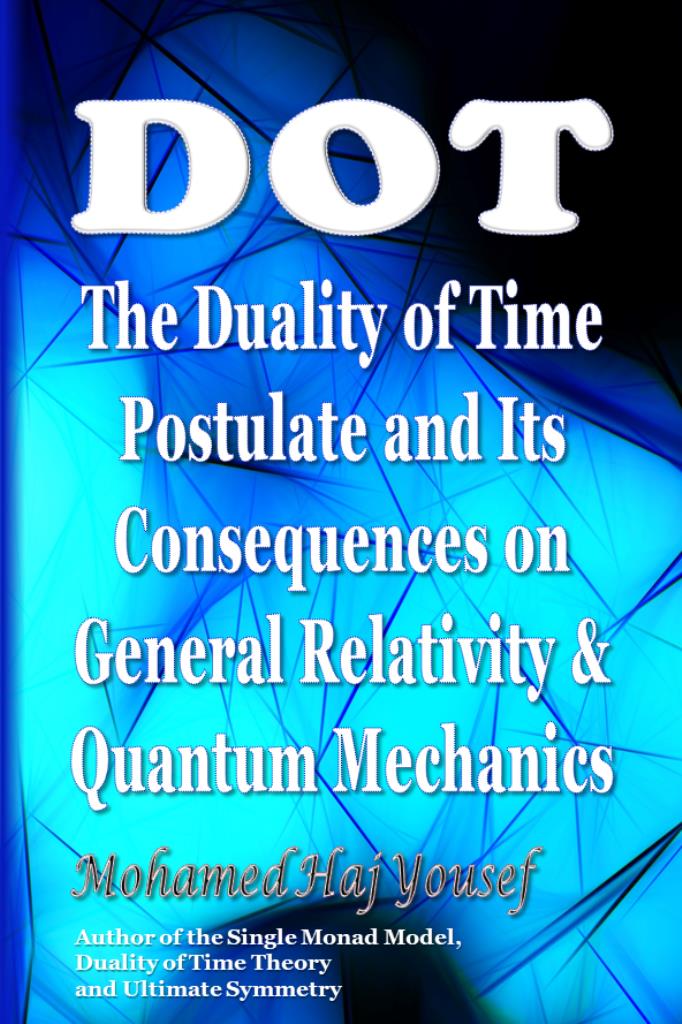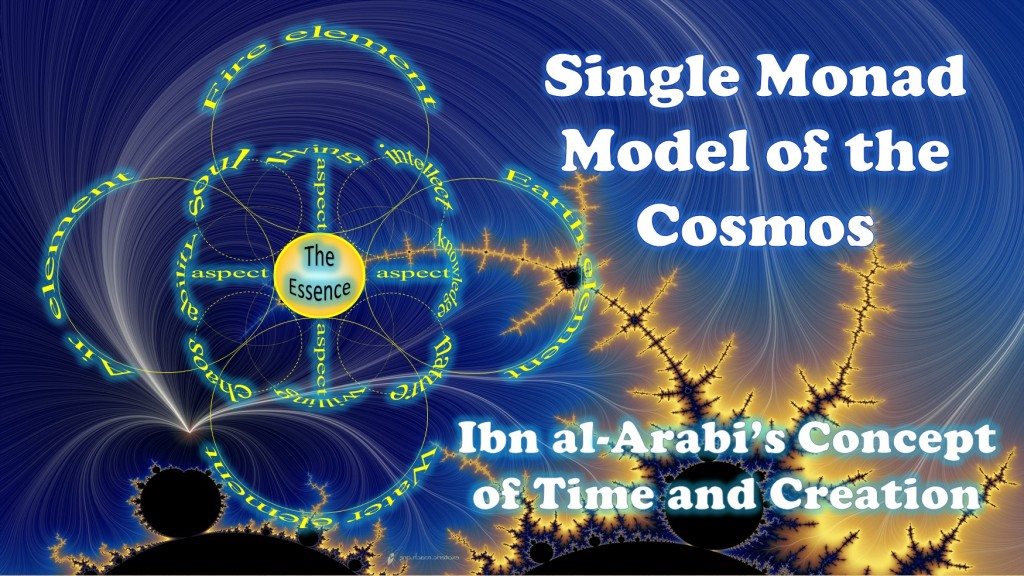4.4.1 When the World Began?
Many people ask questions like “what is the age of the Universe?” or “when did the world begin?” Any answers to such questions will quickly lead to a modern version of the still ongoing debate, whether time was created before the world, or vice versa; or whether they are both eternal. Many riddles and paradoxes quickly emerge out of this debate. For example, one may ask: if the world started at a certain point of time, why God chose this time in particular, and could the world have been created ten minutes before or after that designated time? And what was happening before the beginning of the world?
Ibn al-Arabi, however, shows that such questions are meaningless, because the world is created out of time, and time itself is part of that created world. Allah didn’t create the world in time, because nothing exists “before” the world apart from Him Who is also out of time, and therefore the creation of the world can’t be compared to other events in time. The existence of the Creator precedes the existence of the world logically, and not chronologically, so it is like when we say “the day starts when the Sun rises”: there is no duration of time that separates sunrise from the start of the day [I.100.26], but logically the day wouldn’t start if the Sun didn’t rise. The existence of Allah, Who is Pre-Existent and Self-Existent, is a precondition, not a temporal cause, for the existence of the world. Therefore, because the world was created out of time, the above questions are invalid, because they use time phrases that have no meaning outside of that time which started with the world and not before it.
Ibn al-Arabi showed this clearly, at the very end of his long opening chapter of the Meccan Revelations, by explaining that: ‘The fact of the matter is that the existence of the Real is not determined (temporally or causally) by the existence of the world: not temporally before, with, or after, because temporal or spatial precedence with relation to Allah is confronted by the realities against whoever speaks about it factually, unless he says something by way of illumination, as had been said by the Messenger, peace be upon him, or it was expressed in the (divine) Book. For not everyone is able to experience the unveiling of these realities. We can only say that the Exalted Real exists by Himself and for Himself; His existence is absolute, is not confined by any other than Him, and is not caused by something nor is He the cause of anything, But He is the Creator of causes and results, the King, the Most-Holy One (59:23), Who always is and has been.
The world exists through Allah, not by itself or for itself. Therefore the existence of the Real Who exists by Himself is a determining condition for the existence of the world, which wouldn’t exist at all without the existence of the Real. And since time can’t exist without the existence of the Real and the (divine) Source of the world, therefore the world comes to exist ‘in other-than-time’. Actually we can’t say, in the true reality of things, that Allah existed before the world, because it has been established that ‘before’ is a time phrase, and there was no ‘time’ (before the existence of the world). Nor can we say that the world existed after the existence of the Real, since there is nothing (other than the Real) ‘after’ or ‘with’ the existence of the Real, because He caused (everything else) to exist and is making it and originating it (in the words of a famous Hadith) ‘while there was no thing (with Him)’.
So as we said, the Real exists by Himself and the world exists through the Real. But if someone governed by his imagination should ask ‘When was the world (created) after the Real?’ we would say that ‘when’ is a time-question, and time belongs to the realm of relations, and (as such) is created by Allah, but not like the creation of (physical) existence, because the realm of relations is created by (our human) ‘estimation’ (or consideration), not by the creation of what exists... Therefore this question is not valid. So you should be careful how you ask, and don’t be veiled by the tools of (conventional human) expression from actually realizing and fully comprehending these realities in yourself.
So the only thing left is (1) a pure and absolute Existence, not (one coming into existence) after non-existence, and that is the existence of the Real, may He be exalted! And (2) an existence (that only comes to be) after the non-existence of the essence of that existent thing itself, and that is the existence of the world. There is not any comparability or (co-extensive) extension between those two existences, apart from that imagined, presumed one that is refuted by (true) knowledge. Nothing is left of that (falsely supposed comparability of God and the world) but absolute Existence (of God) and determined existence (of the world), Active Existence (of God) and passive existence (of the world). This is what is given by the realities, and peace (i.e., that’s all!).’ [I.90.9]
However, even after this long explanation and other extensive efforts by Ibn al-Arabi, the issue is not very clear yet, if we want to take it logically, because once we try to fix our imagination on a point that is the start of time, the question of what was before that emerges instantly. It is not possible to conceive of a starting point of time, because every point in time has a past and a future time; as Ibn al-Arabi has just acknowledged, we normally can’t conceive of any time that has no time before it.
However, the world for Ibn al-Arabi is both spiritual and material, and as we have seen above there are two corresponding kinds of time, spiritual and physical. The spiritual world preceded the creation of the material Universe, or nature, as we know it, as stars and planets, so there was spiritual time before the creation of the physical world. He indicates that spiritual time is necessary to describe the relation between spirits and the divine Names before creating of the physical world. In this respect Ibn al-Arabi does respond to the above-mentioned questioning about what was ‘before’ the creation of the physical world, but he still considers such questioning invalid beyond these two created realms of the world.
Actually, Ibn al-Arabi considers the age of the world, as spiritual and material together, to be infinite from both directions: it has always been and it will always be; it is eternal without beginning and eternal without end. He also considers those two ends to coincide with each other, so time as a whole is like a circle that can’t be described to have a beginning nor an end, but when we set a point, such as the present, and a direction, to the past or the future, on this circle we define a beginning and an end [I.387.32, III.546.30].
Following Avicenna’s familiar theological categories, Ibn al-Arabi divides all things, in terms of their type of existence, into three inclusive categories: Necessary, possible or contingent existence, and the impossible [II.293.1, II.575-576], as described in section 1.2. Only Allah’s existence is described as Necessary or Self-Existent, while absolute non-existence is impossible. The world, on the other hand, is the contingent existence it is possible to exist, but in order to actually come into existence; it needs a determining cause who has to be pre-existent and self-existent, or none other but Allah, the Creator. Therefore, the world (as the possible) is originally non-existence, but not absolute non-existence; only a non-existence that is possible to exist, and it is always in need of Allah in order to bring it into existence; thus it can be said that it exists by or through Allah, and not through itself. The difference between absolute non-existence and possible non-existence is that the latter exists in Allah’s Knowledge, even before it comes into real existence; that foreknowledge is eternal because His knowledge is not other than Himself [I.300.32, II.114.15].
So the world, spatial and temporal, eternally existed or was determined in Allah’s knowledge, but it is continuously brought into real existence ad infinitum: ‘When Allah brought the entities (into existence), He brought them for them not for Him. But (for Him) they are still as they were on their spatial and temporal states, with their different time and space (relative relationships). He reveals to them their entities and states little by little, infinitely and successively. So the issue for Allah is one, as He said: (Our Command is but one, as the twinkling of an eye) [54:50], and multiplicity is (only) for the countable things themselves.’ [I.162.22]


















